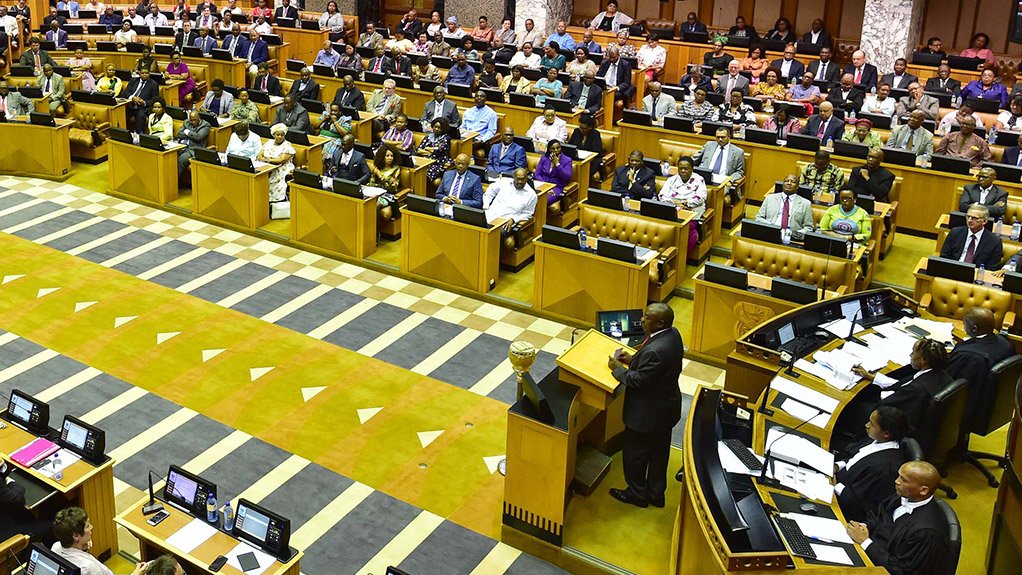Finance Minister Tito Mboweni on Wednesday said the public service wage bill, which accounts for 36% of government spending, is unsustainable.
The public sector wage bill should be closer to 30% of government spending, he added during his maiden Medium Term Budget Policy Statement (MTBPS) speech.
“Good signals need to be sent right from top-level governance on this issue . . . that [belts need to be tightened], even with the cars that they drive.
“Part of the signal would have to be sent by the President in terms of the size of his Cabinet. Our country needs no more than 25 Ministers and probably 20 would be sufficient. China has 25 ministers.”
The current configuration of South Africa’s Ministers and deputy Ministers add up to nearly 70 officials.
Because it involves people, a tighter wage bill for public servants would need extensive negotiation with unions. Mboweni also suggested lowering the pensionable age in the public sector, without losing the needed skills.
The 2018 public service wage agreement will exceed budgeted baselines by about R30.2-billion through 2020/21, leading to a shortfall that will need to be managed, the MTBPS shows.
The national and provincial departments are expected to absorb these costs within their R1.8-trillion compensation baselines over the same period.
Government is working on an approach to manage these pressures over the medium term. The public service wage bill constitutes the largest share of government expenditure by economic classification, crowding out other spending.
Between 2006/7 and 2017/18, compensation rose from 32.8% to 35.2% of all spending, and from 53.7% to 58.1% of current spending.
The public service wage agreement, which adds increased pressure to the budget and which was reached in June, includes a cost-of-living adjustment that is linked to consumer price index inflation and a commitment to standardise progression policies, which includes a 1.5% yearly wage increase.
This agreement is estimated to cost R242-billion over the 2018 medium term expenditure framework (MTEF) period, exceeding the R212-billion budgeted for salary increases and other conditions of service.
Of the R30.2-billion shortfall across national and provincial government departments, the largest gaps are in defence, the police, provincial health and provincial education sectors.
Government’s current wage bill accounts for about 35% of consolidated spending. No additional funding is available over the 2019 MTEF period; instead, departments need to fund shortfalls by adjusting within their compensation baselines – meaning increased efficiency and careful management of overtime and performance incentives.
PUBLIC SERVANTS FACTS
Between 2006/7 and 2017/18, the number of personnel in the public service sector rose from just under 1.2-million to just over 1.3-million, which is a 15% increase.
Gauteng accounts for nearly 30% of the increase in public service employment. More than 90% of the Gauteng increase reflects hiring in the departments of health and education.
Headcounts generally rose between 2006/7 and 2011/12 and then stabilised or fell between 2011/12 and 2017/18, in response to tightening budgets.
In real terms, per capita remuneration in the public service sector rose by 3.1% a year, from R263 000 in 2006/7 to R364 000 in 2017/18.
While wage agreements have granted consistent real increases, the average rank of public servants has also tended to increase through the 16 salary levels used in government.
EMAIL THIS ARTICLE SAVE THIS ARTICLE ARTICLE ENQUIRY
To subscribe email subscriptions@creamermedia.co.za or click here
To advertise email advertising@creamermedia.co.za or click here











